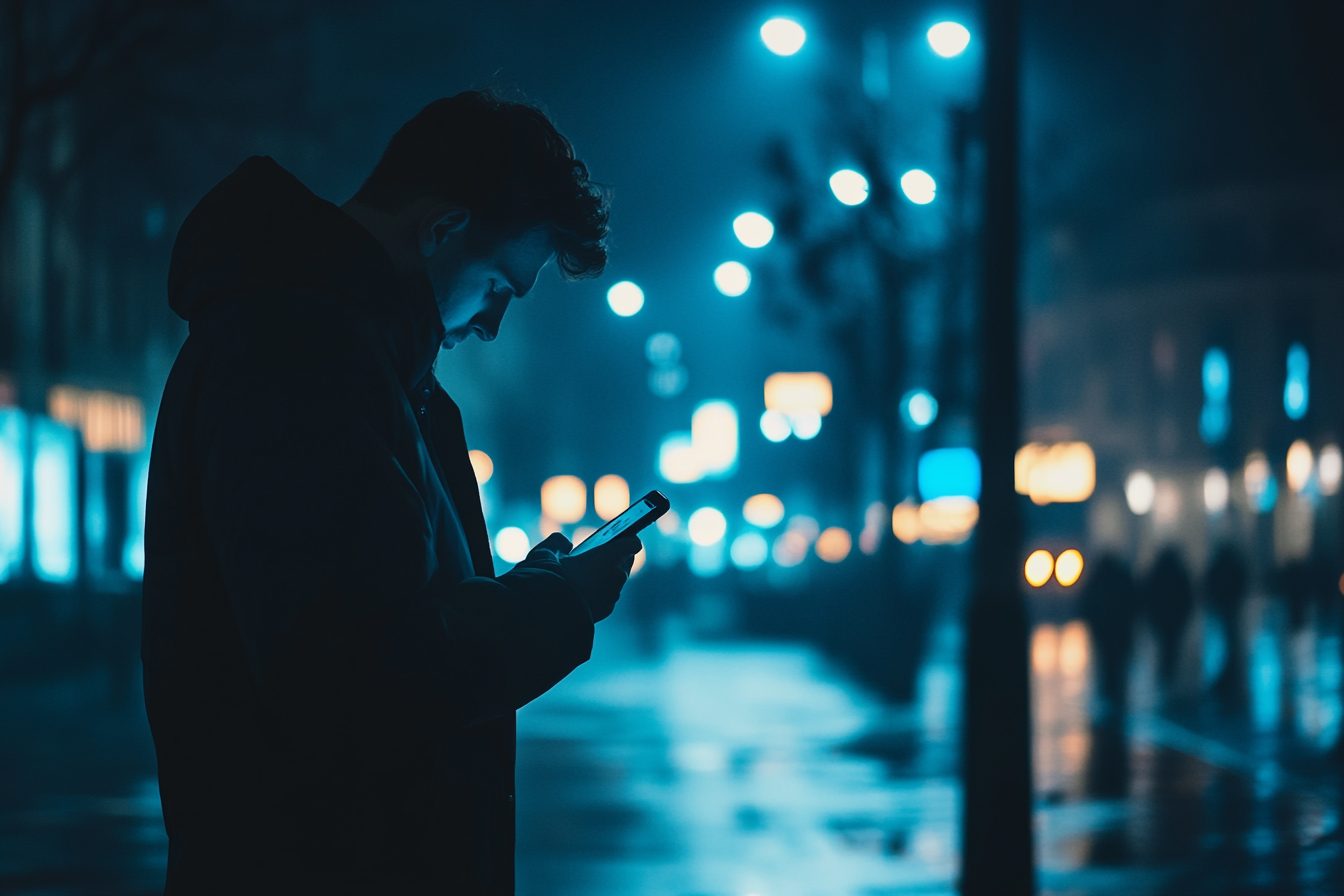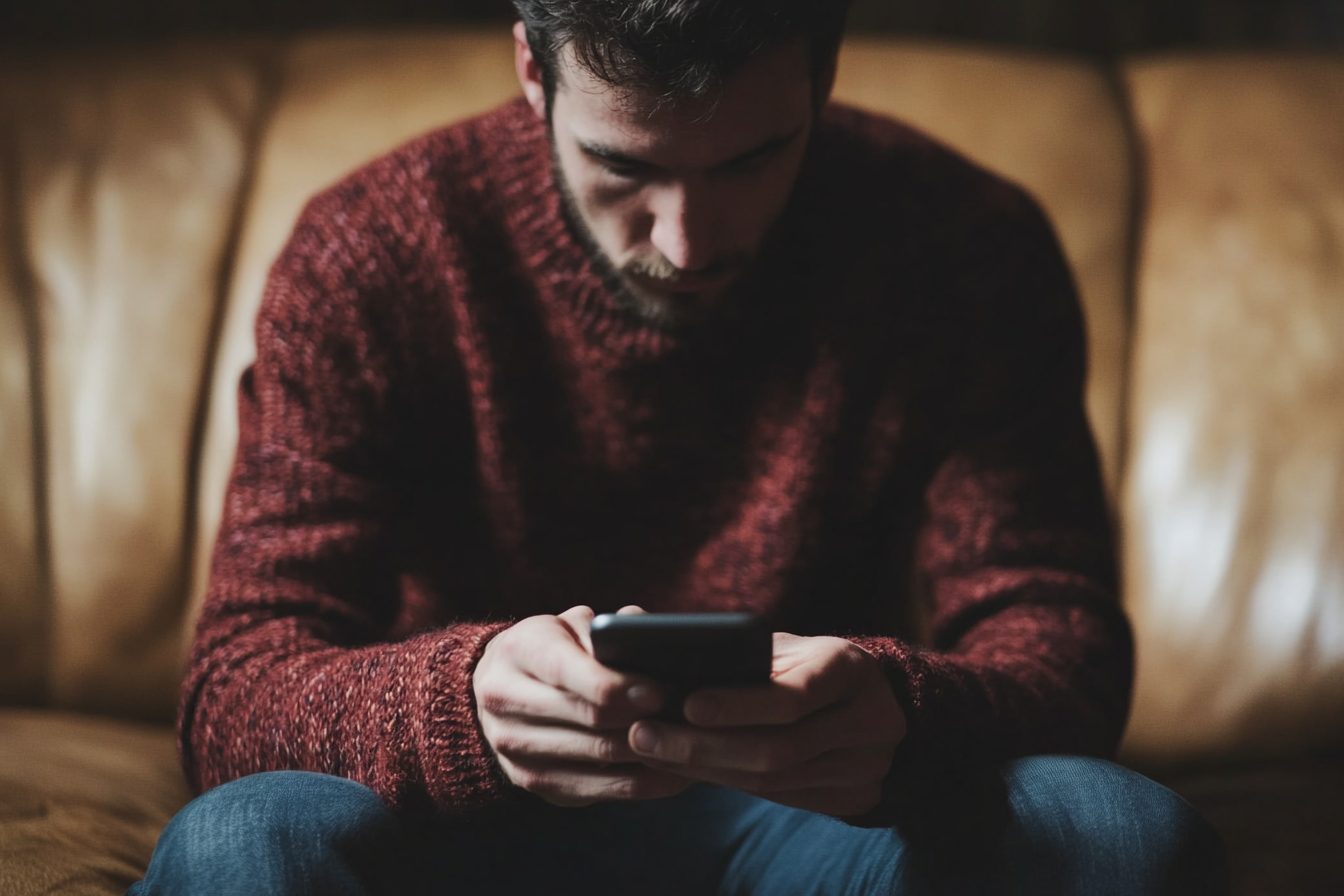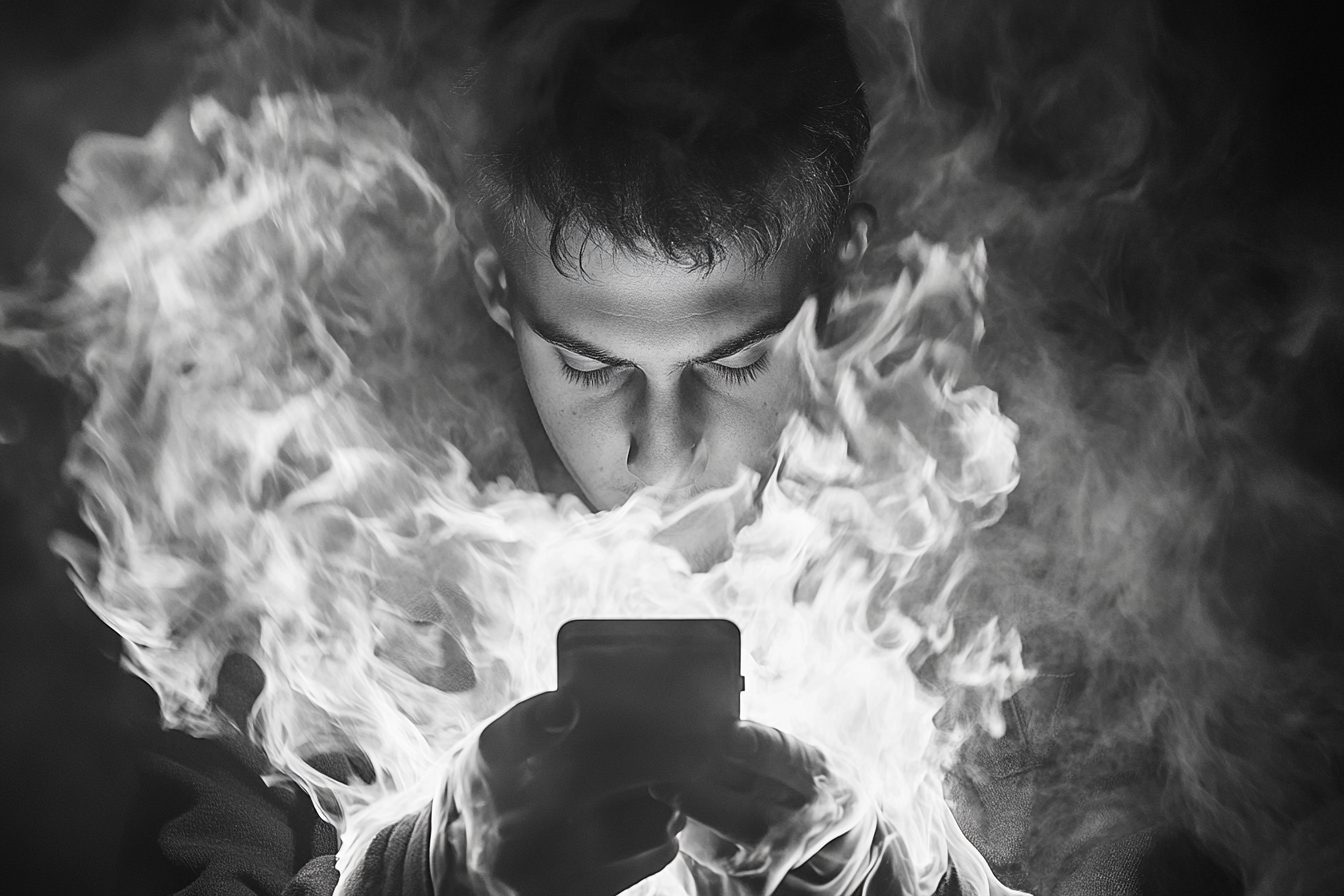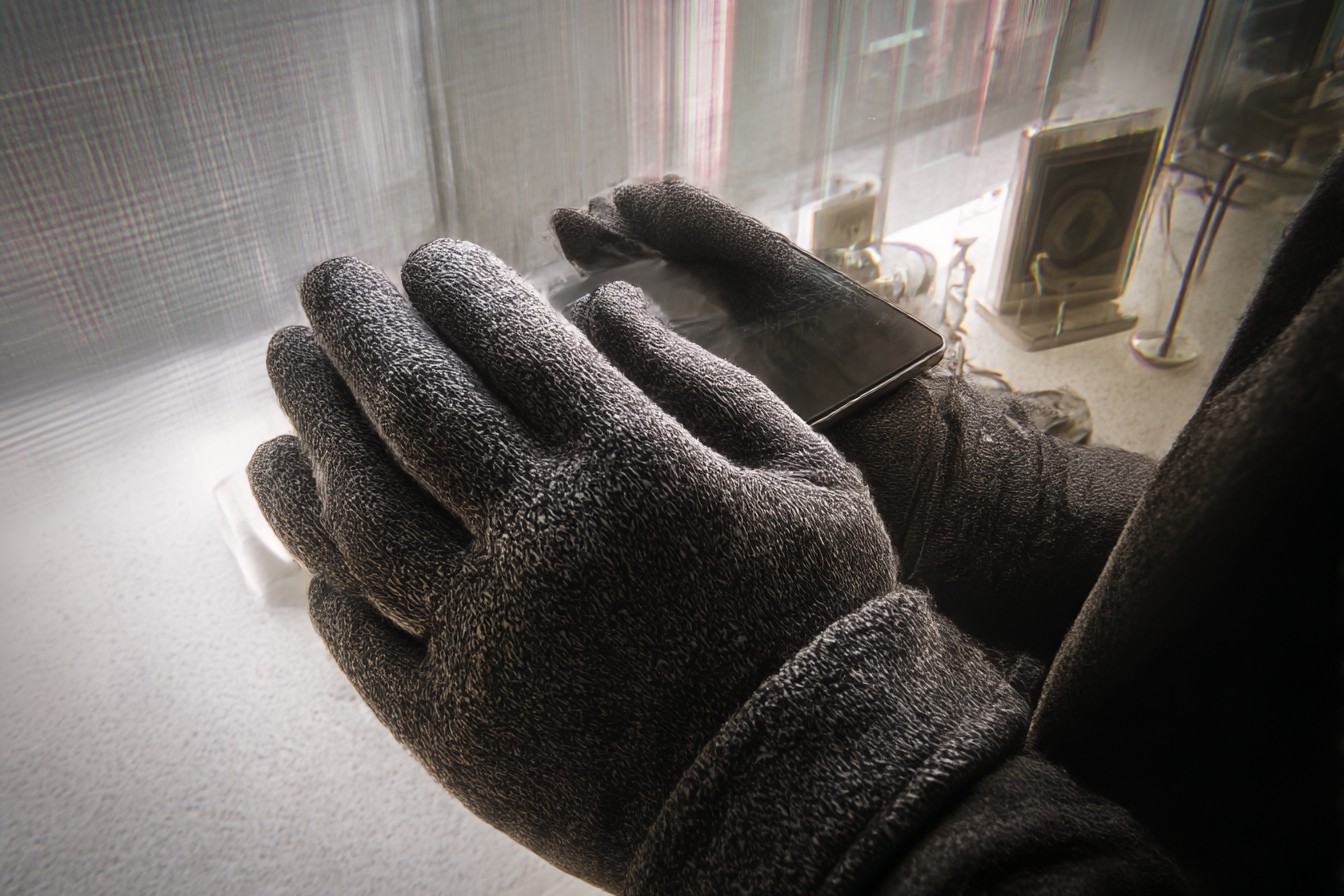Last Thursday I decided to shoot my nephew a text inquiring if I could borrow his ladder over the weekend. As of today, Tuesday, there’s still no response. While I do recall getting a “Delivered” sign, I don’t remember noticing a “Read” notification – which didn’t bother me much until this very moment.
My peace of mind has been shattered because of the difference between these two in a way that’s maddening. Back in 2005 and early 2020, communication was so much more pure. You spoke to someone.
They picked up or didn’t. If not, they’d let a voicemail answer and they’d get to it when they had the time to give me a call. No urgent-response-demanding immediacy and definitely no digital indicator confirming you were being ignored.
Ever since texting became a thing, it’s safe to say I’ve turned into a makeshift detective. I’m just a forensic psychologist and deep thinker gone overboard. And now, gray bubbles have become my fulltime job to interpret like they’re trying to hide some work secrets.
For his case, itn stands if he is busy or his phone is dead. Or even more worrisome, he could be ignoring my text because ladders represent some sort of trauma I’m not privy to. My friend Martin is always saying that waiting more than an hour to respond to a text is “ultimatively declaring war.” But what stands is that he is 52 and not too long ago wasted $400 on some youth-booster moisturizer, so maybe he views things a little differently.
With that said, it is clear he has built a whole system around response times. A reply to a request in less than 5 minutes means they rate you as important. Within half an hour means they respect you.
“You staying under two hours means that they tolerate you, but anything beyond that means you might as well be dead to them.” There was a time when he bafflingly described said wife “not wanting to talk” to him as he went through all five of the so-called ‘grief stages’ simply because he was waiting on her text asking what he would want for dinner. The man left himself thinking, ‘anything is fine,’ which was so deep in the belly of hell that he had no choice but to convince himself that she was looking to cheat with him, threatening to get child support in the event of a divorce, or else searching for rather indolent burglars where the only downside was getting abducted.”
The most unfortunate downside is how such a marvel of technology has changed our standards. Just the other day, I texted my doctor’s office to reschedule an appointment, and they replied within three minutes. That is impressive customer service!
But at the same time, it makes me wonder if there was literally nothing else at hand that required attention other than replying to my message. Shouldn’t there be sick patients to attend to? What about other urgent cases?
My utter bafflement at receiving such timely prompts simply demonstrates the extent to which I have set the standards for myself. And alongside that, there is the psychological warfare waged by the three bouncing dots that signal that a response is being prepared. Those tiny graphics can be menacing.
Those dots blinking in and out, one after the other four times. The anticipation was shattered without hope of receiving an answer. While I sat dumbfounded trying to comprehend what the person could be trying to say, the only reply I got was: “k.”
Surprisingly, we had options like “J” and “l.”
The eyes widen and the head begins to shake. The words were written as fast as humanly possible and delivered on a ride-share app, yet they were composed multiple times with so many versions. The only thing said was “k.” Instead of “gonna,” I am more than certain “gonna have to skip over the ‘d’ with you. It ain’t happening.” That was probably the ‘d’ in the second version which led to the ‘rejected versions.’
My coworker comes up with that fills her with pride, in her words, “waiting to unleash confusion.” At this point, it feels both gratifying and amusing to dislike listening to her attempt to explain: “It’s when a person is waiting for exactly 1.5x more the time a person takes to reply to them.” I can imagine her shaking with frustration while trying to alternate three incoming texts. Susan is her name, she’s 61 and we bounce off a wall, laughing surprised.
Analyze her strategizing the psychological warfare involved in texting, and that should paint a vivid mental picture of the extent to which this technology has subjected us. Knowing the message receipt reveals the message was read clearly indicates receipt without reply. You switch off the device after the message is read, and no further steps are needed.
By this point, it should be clear that there aren’t any additional steps needed. All the effort put forth has been exhaustively used up, it is only rational that they too turn off the device and avoid feeling further letdown. Quite recently, I sent a message to my sibling alerting them of a leak I noticed in their house during a recent visit. Much to my amusement, their read receipt was activated literally moments after.
It has been two weeks since my initial message, and the expected response has yet to surface. His apathy is troubling, for if there’s no concern for the state of his home, then I have to start worrying for my brother. Or perhaps he has managed the feat of being able to process input information without feeling the need to respond. Either way, I’m left questioning what sense there is for me to still feel invested.
The headache of anticipating a reply has birthed new forms of etiquette. I oftentimes find myself drafting follow up messages and subsequently deleting them for fear of being overly anxious. I have also sent “just checking in” messages as if I am conducting a wellness check instead of aiming to receive a reply.
In order to reset conversations, I have acted as if I had mistakenly sent messages to the wrong person. For example, I’ve said “oops, that was meant for Karen!” without actually having a practitioner named Karen, without an initial message, and without any tangible rationale to the narrative for why it would make sense to change the text. The absence of communication is so slow that the mere phenomenon of a response has left so devoid of minimalist structure of expectation as to the time span someone needs to respond within is frustratingly difficult through rational thought processes.
Is it too much to expect a response in an hour? A day? A week?
At this point, I genuinely don’t think anyone knows the answer to that question anymore. We are genuinely roaming around without a means to navigate in the dark, desperately clinging on to phones as if their lives depend on it waiting for confirmation whether they have been left on read or whether the person on the other side simply possesses a different relationship with technology. My neighbor’s daughter, still very young but seemingly glued to their phone, argues that the different messaging services all have different sets of rules when it comes to response time.
“‘Insta DMs is casual. A day or even more is fine,’ she told me when I foolishly sought advice from her.” Snapchat is different—”people need an immediate reply. If you don’t respond to a snap in under an hour, that friendship might as well be dead.” Listening to her, you would think she was explaining something as advanced as the launch codes to a nuclear weapon; and while I kept saying, yes, I was actually thinking how fortunate I am to have spent my formative years when ghosting someone was more tied to Halloween than the act of hurting one’s feelings.
The most ridiculous thing about this story is how it has changed my everyday life. I do not recall the last time I used the restroom without my smartphone or neglected checking my email during meals. Most importantly, I do not remember having to spend the last ten to twenty minutes of my day frequenting my smartphone so I can start my day with checking it; or finish my day with staring at it. All of this, of course, is in an effort to prevent committing the cardinal sin of the 21st century: being a slow responder.
My dinner was interrupted last month when my phone decided to turn off. I saw three missed messages over the same number from one contact, asking whether I was okay, and an additional message from another friend saying he would call the cops for a wellness check. My phone battery was dead, in case you were wondering. Threatening my phone’s battery was quite remarkable, but to top that off, there was my sister-in-law contemplating whether I was trying to purposely avoid her question regarding the Christmas plans.
I was sitting in silence for just two hours when all of that spurred out. I personally laugh at the fact that this is quiet a developed excuse for us when it came to reasoning, or in this case making excuses, for replying late to messages. We reply with, “My bad, I am just seeing this now,” even when you can be certain that they read the message right away.
And I believe a person’s battery life being at 78% means that “my phone died” could be used as another excuse we tend to rely on so much. “I have been really busy,” is what one my friends says without realizing that my friend spent an entire day watching Seventeen YouTube videos on van conversions. As shocking as that is, that seems to become a new norm: providing command responses. We have trained ourselves to believe that an immediate answer must be provided.
It’s heartbreaking, it doesn’t seem fair, and instead of being a device that reduces communication stress to its simplest form, it fails magnificently, turning into a constant source of anxiety. In connection with my nephew and the ladder, after reading the message for some time, I thought of giving him a call. To my surprise, he was quick to pick up the phone and apologize for not answering.
As it turned out, he explained that he had intended to reply to the message during his drive, but totally forgot by the time he got to his destination. That reasoning is completely acceptable, but it does not solve the problem of the four days where I had insulated myself, crafting narratives about how he could possibly detest me. The next time one of my friends is asking me for something, I wonder if they’d appreciate a period of delayed response, increase it to four days.
Without trying to sound rude, I find it important to point out how to properly communicate. Or, I could lead by example and respond right away, demonstrating that this is the preferred course of action. Not to be condescending, but I’ll tell myself that.
I will respond in a few minutes for some reason. It’s unfortunate that this is the person I have turned into and, oddly, this lawsuit is no doubt mine. Yet another victim of the messaging conflict, hoping to see the three dots turned into text.









